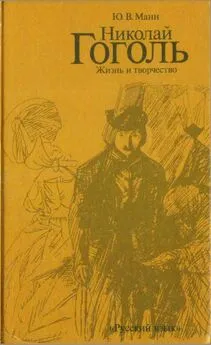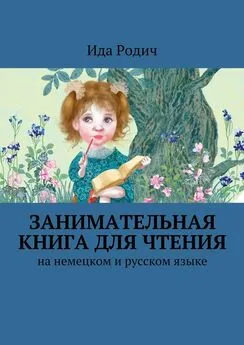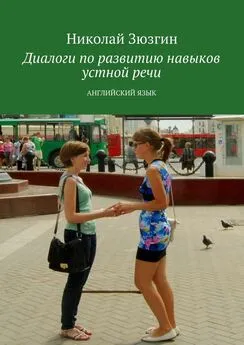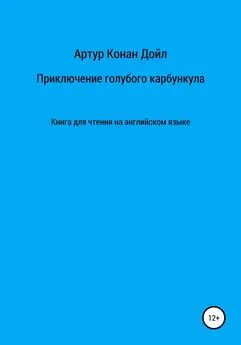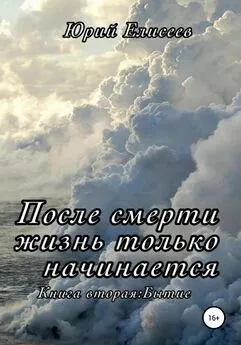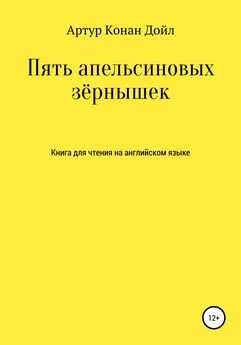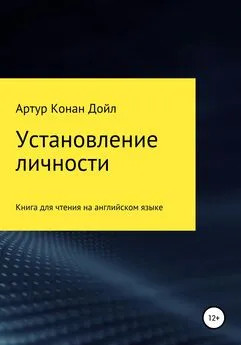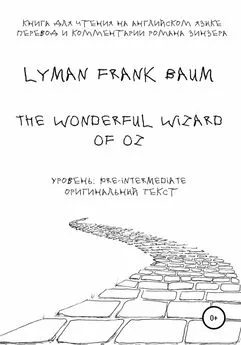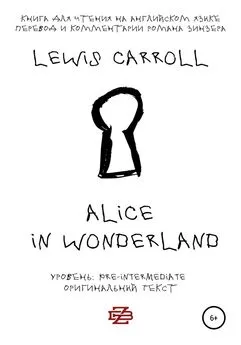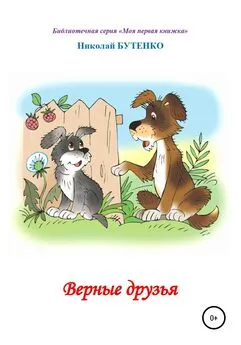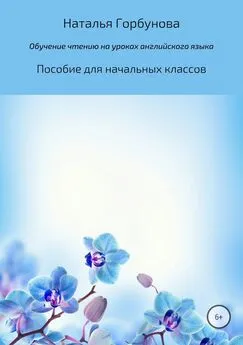Юрий Манн - Николай Гоголь. Жизнь и творчество (Книга для чтения с комментарием на английском языке)
- Название:Николай Гоголь. Жизнь и творчество (Книга для чтения с комментарием на английском языке)
- Автор:
- Жанр:
- Издательство:Русский язык
- Год:1988
- Город:Москва
- ISBN:-200-00073-4
- Рейтинг:
- Избранное:Добавить в избранное
-
Отзывы:
-
Ваша оценка:
Юрий Манн - Николай Гоголь. Жизнь и творчество (Книга для чтения с комментарием на английском языке) краткое содержание
Николай Гоголь. Жизнь и творчество (Книга для чтения с комментарием на английском языке) - читать онлайн бесплатно полную версию (весь текст целиком)
Интервал:
Закладка:
Специального и глубокого освещения заслуживают философские, этические, религиозные, эстетические взгляды Гоголя.
А сколько встаёт ещё более общих историко-литературных тем: "Гоголь и предшествующая русская литература", "Гоголь и натуральная школа", "Смех Гоголя", "Гоголь и русское общество", "Гоголь и мировая литература"… Некоторых из этих тем мы коснулись бегло, другие даже не затронули.
Словом, читателю, заинтересованному Гоголем, предстоит ещё многое изучить, многое узнать. И тогда перед ним более глубоко раскроется величие, оригинальность и непреходящая жизненность этого художника.
Notes
Abbreviations
arch., archaic
It., Italian
coll., colloquial
Lat., Latin
eccl., ecclesiastical
lit., literally
Fr., French
phras., phraseology
Ger., German
pop., popular
hist., historical
Ukr., Ukrainian
Пушкин, Alexander Sergeyevich Pushkin (1799–1837), Russian writer, founder of modern Russian literature. Author of long poems The Captive of the Caucasus, The Fountain of Bakhchisarai, The Gypsies. Poltava), the novel in verse Eugene Onegin, the drama Boris Godunov, the prose works The Tales of the Late Ivan Petrovich Belkin, The Queen of Spades, The Captain's Daughter, and countless lyric poems.
Лермонтов, Mikhail Yuryevich Lermontov (1814–1841), Russian poet and novelist; author of the novel A Hero of Our Time, the drama Masquerade, the long poems Mtsyri and The Demon, and many lyric poems.
Chapter I
дьячок, sexton, a church custodian performing minor duties
Украина, the Ukraine, lying in the south-west of European Russia, was dominated from the 14th century by the Grand Duchy of Lithuania and Poland. As a result of the liberation war waged by its people under Bogdan Khmelnitsky in 1648–1654, the Ukraine was reunited with Russia. Today the Ukraine is a Union republic of the USSR.
запорожцы (hist.), Cossacks of the Zaporozhye Sech, the community of Ukrainian Cossacks who lived below the Dnieper rapids (16th-l8th cent.). The Russian for rapids is поро́ги, hence the name zaporozhtsy. These Cossacks were very prominent in the national-liberation struggle waged by the Ukrainians against foreign invaders.
секунд-майор (hist.), officer’s rank in the Russian army in the 18th century, which corresponds to the rank of captain.
десятина (arch.), dessiatine, a Russian unit of land area equal to 2.7 acres (1.45 hectares).
души крестьян (arch.). Under the serf system (abrogated in Russia in 1861) the peasants were attached to the land and fully subjugated to their landlords. A landlord's standing was gauged in terms of the number of his peasants, called "peasant souls".
натуральное хозяйство (hist.), subsistence economy.
Аксаков, Sergei Timofeyevich Aksakov (1791–1859), Russian writer, author of the autobiographical Chronicles of a Russian Family and The Years of Childhood of Bagrov-Grandson. He described his impressions of Gogol in his memoirs My Acquaintance with Gogol.
хутор, in the Ukraine, a settlement outside the boundaries of a village, which could comprise several farmsteads.
храмовой праздник, feast in honour of the patron saint of a given church.
Мазепа, Ivan Stepanovich Mazepa (1644–1709), Ukrainian hetman (Cossack leader). He favoured the secession from Russia, and so defected to the Swedes, who invaded the Ukraine during the Northern War waged by Russia and Sweden.
пасичник ( correct form, па́сечник), bee-keeper, someone in charge of an apiary (па́сека).
движимое имущество, movables.
министр уделов (hist.), minister of land grants; he was in charge of the immovable property owned by the Russian imperial family.
Кулиш, Panteleimon Alexandrovich Kulish (1819–1897), Ukrainian author, historian and ethnographer. He wrote a two-volume work The Life of Nikolai Gogol.
разноблюдный, consisting of several dishes.
Безбородко, Alexander Andreyevich Bezborodko (1747–1799), Russian statesman, who held the post of chancellor.
находиться на пансионе, to board (to be provided with regular meals, services, lodgings).
Данилевский, Grigory Petrovich Danilevsky (182^-1890), Russian and Ukrainian writer, author of popular historical novels (Princess Tarakanova, Burnt-Out Moscow, etc.).
Фонвизин, Denis Ivanovich Fonvisin (1745–1792), Russian writer, author of the comedies The Dunce and The Brigadier.
Щепкин, Mikhail Semyonovich Shchepkin (1788–1863), Russian actor, one of the founders of Realism on the Russian stage. He played with great success in Gogol’s comedies and was on friendly terms with him.
инспектор, here hist.: schoolmaster in a public school. He supervised his pupils’ daily life, tuition, etc.
Chapter 2
форейтор (hist.; Ger. Vorreiter), postilion, one who rides as a guide on a horse attached to a coach.
плошка, a primitive lamp, a vessel with oil and a wick.
департамент (hist.), department of a ministry in pre-revolutionary Russia.
коллегии (hist.), here, a state institution. In the 18th and early 19th centuries the collegia were higher executive bodies in charge of different administrative branches. They were abolished in favour of ministries, but the Foreign Affairs Collegium continued to exist until 1832.
Полевой, Nikolai Alexeyevich Polevoi (1796–1846), Russian journalist, writer and historian, publisher of Moskovsky telegraf (Moscow Telegraph) — one of the finest Russian magazines. Polevoi is the author of the many-volumed History of the Russian People , several long stories, novels and plays.
Опекунский совет (hist.), Custody Board in charge of orphanages, which also engaged in savings-bank activities.
инспектор русской труппы (hist.), official who supervised the repertory of the Imperial Theatre’s Russian company of actors (along with a Russian company, St. Petersburg also had a French company).
без нарочитого педалирования, without special emphasis.
столоначальник (arch.), head of a department.
"Отечественные записки", Annals of Our Country, a progressive journal published in St. Petersburg in 1839-84. V. Belinsky was head of the journal’s criticism section in 1839-46.
малороссийский, Ukrainian; before the Revolution, the Ukraine was also known as Malorossia.
Жуковский, Vasily Andreyevich Zhukovsky (1783–1852), Russian poet, author of the romantic ballads Lyudmila, Svetlana, and other works. He was also a renowned translator of poetry into Russian.
Плетнёв, Pyotr Alexandrovich Pletnyov (1792–1865), Russian poet, critic and journalist, editor of the journal Sovremennik (The Contemporary).
Дельвиг, Anton Antonovich Delvig (1798–1831), Russian poet, publisher of the anthology Severniye tsvety (Northern Flowers) and of Literaturnaya gazeta (The Literary Gazette).
Иван-Купала, ancient feast of the summer solstice; observed by the Eastern Slavs, the Ukrainians among them, on June 24 (Old Style); midsummer night.
до времен гетманских, i. e., before 1648; before the hetman became ruler of the Ukraine and head of the Cossack troops.
ковчег, a shrine holding relics; also, Noah’s ark; in this case it means "receptacle*’.
хуторянин, inhabitant of a khutor (see Notes to Ch. 1).
пан, land-owner, man of noble birth.
парубок, (Ukr.) young man, lad.
свитка, wide upper garment.
фактор (arch.), technical manager of a printing establishment.
Мольер, Moliere (Jean Baptiste Poquelin, 1622–1673), French playwright and actor, one of the founders of modern European comedy. Among his best-known works are L’Avare, Tartuffe, Le Bourgeois Gentilhomme , and Le Malade Imaginaire.
Одоевский, Vladimir Fyodorovich Odoyevsky (1804–1869), Russian writer, critic and philosopher, author of many short and long stories, and plays. Among his best-known works are the philosophical cycle Russian Nights and the fairy-tale Little Town in a Snuffbox.
яко ( Ukr .), as, in the capacity of.
великороссийский, the old form for россййский.
Анненков, Pave! Vasilyevich Annenkov (1813–1887), Russian literary critic, scholar and author of memoirs; he prepared the first academie édition of Pushkin’s works for the press.
однокорытники (Gogol’s neologism), schoolfellows.
Гюго, Victor-Marie Hugo (1802–1885), French writer. Author of many poems, the novels Notre Dame de Paris, Les Misérables, Les Travailleurs de la Mer, the dramas Marion de Lorme, Hernani, Ruy B las, Cromwell, etc.
Дюма, Alexandre Dumas (1802–1870), French writer, author of the popular novels Les Trois Mousquetaires, Le Comte de Monte-Cristo, etc.
Бальзак, Honoré de Balzac (1799–1850), French writer, author of novels and stories which make up the monumental collection of the Comédie Humaine: Le Chef-d'Oeuvre Inconnu, La Peau de Chagrin, Eugénie Grandet, Le Père Goriot, Les Illusions Perdues, and many others.
Ге, Sophie Gay (1776–1852), French writer.
Жанен, Jules Gabriel Janin (1804–1874), French writer and journalist.
стушеваться, to efface oneself; to be embarrassed.
петушком (coll.), in a swaggering way.
Chapter 3
Белоруссия, Byelorussia, lying in the western part of the USSR, is one of its Union republics.
с обеими столицами. When in 1712 St. Petersburg was made the capital of Russia, Moscow retained its importance as the country’s second capital. After the October
Socialist Révolution Moscow again became the capital city (in 1918).
Аксаков, (Constantin Sergeyevich Aksakov (1817–1860), Russian critic, publicist and poet, one of the foun-ders of the Slavophiie movement. Не was the son of S. Aksakov (see Notes to Ch. 1).
Погодин, Mikhail Petrovich Pogodin (1800–1875), Russian historian, writer and journalist, prof essor of Moscow University.
Загоскин, Mikhail Nikolayevich Zagoskin (1789–1852), Russian writer. Author of comédies, stories and novels, of which the most popular are Yuri Miloslavsky, or The Russians in 1612 and Roslavlev, or The Russians in 1812.
Читать дальшеИнтервал:
Закладка:
